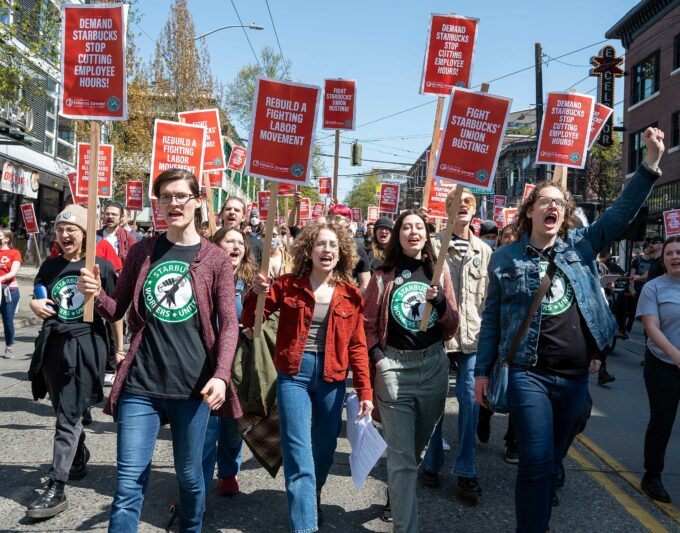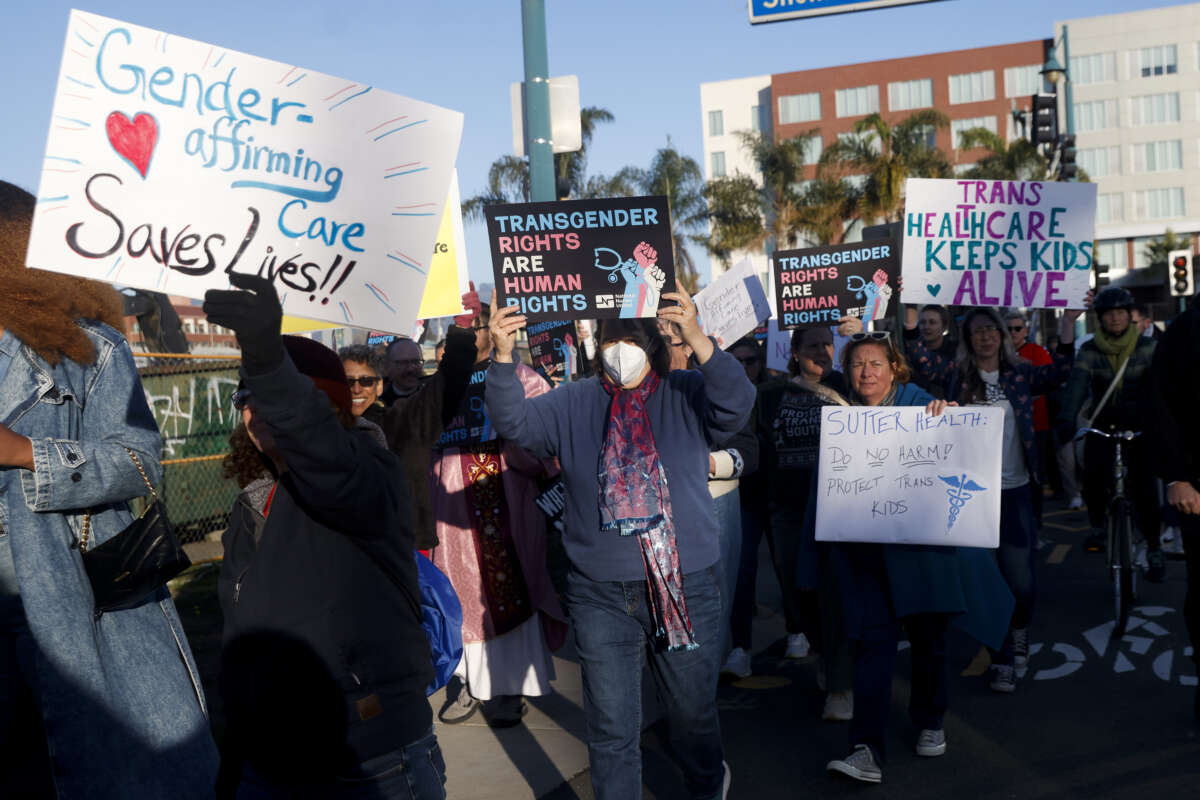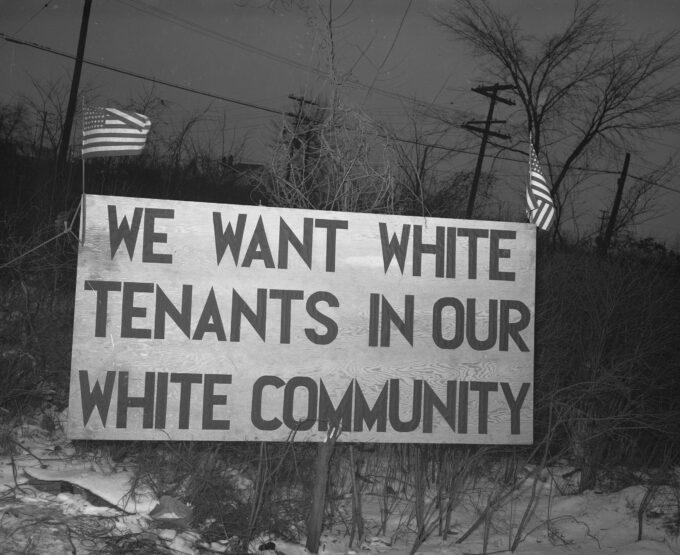
Starbucks workers protesting in Seattle. Photo: Eric Stoller. CC BY-SA 2.0
Thousands of baristas at nearly 100 Starbucks locations are on strike this holiday season, picketing outside the iconic cafes for a contract. While the corporate coffee chain has claimed little to no disruption to its bottom line so far, the union chose one of the most lucrative sales days of the year to launch its strike—Red Cup Day—and boldly rebranded it as a “Red Cup Rebellion.”
How long the rebellion will last is unclear. But given the union’s strong stand and public appetite to punish misbehaving corporations, Starbucks is risking everything by ignoring its workers’ demands.
“This is not the first nationwide strike,” explained Diego Franco, a Chicago-based Starbucks worker who is active with Starbucks Workers United (SBWU) and an elected strike captain. “However,” he added, “this will be the largest strike in the company’s history.”
It all began in December 2021 when the New York Times hailed the first-ever successful union vote at an Elmwood Starbucks near Buffalo, New York, as a “big symbolic win for labor.”
In response, the company brought its founding CEO Howard Schultz out of retirement in 2022 to lead it on an interim basis. But Schultz’s return did little to stave off the union’s momentum, and by 2025, in spite of multiple changes in leadership, more than 640 Starbucks cafes were unionized under the banner of SBWU. This is despite a union-busting campaign that was so aggressive that the National Labor Relations Board denounced the company’s actions as a “virulent, widespread and well-orchestrated response to employees’ protected organizing efforts.” Senator Bernie Sanders (I-VT) also lambasted it as “the most aggressive and illegal union-busting campaign in the modern history of our country.”
The company has long referred to its workers as “partners,” a term that holds the promise of fairness. But, according to Franco, “they claim that we are partners until we have serious issues and serious demands [that] we want to bring to the table… At that point, they choose to stonewall us, they engage in union busting, and they try to drag this out for as long as they can.”
The union is calling on the public to not cross picket lines and to not spend money at any Starbucks location or on products until the company agrees to negotiate a contract. It’s a well-timed strike that comes on the heels of many months of stalled negotiations—Starbucks relies on brisk sales during the holiday season when it rolls out signature hot drinks and coffee-related gift-giving—and it has a catchy name: “No Contract, No Coffee.”
“We are asking people not to shop at Starbucks, whether the location be union, non-union,” said Franco. “Do not buy Starbucks at the grocery stores. Don’t even buy it from the vending machines.” Such a widespread boycott could cripple a company whose sales are already flagging.
Unfortunately for Starbucks, the strike also comes at a time when Americans are in a rebellious mood against corporate elites and extremely distrustful of billionaires. In the public opinion battle between a young, diverse, low-income group of workers and a new CEO—who was gifted an unimaginably large compensation package of $96 million for four months’ work in 2024, plus use of the company jet—workers will likely win.
The company boasts of good pay and benefits for its workers, but the reality is quite different. “Tenured coworkers and tenured employees often find themselves having their hours cut, and so, then they do not make the threshold to qualify for these benefits,” explained Franco.
He added, “I’ve had coworkers get kicked off of [their] healthcare insurance. I’ve seen college students get kicked off of the college tuition plan that Starbucks offers, and then having to pay back the money in student loans that they thought the company was paying off for them, simply because their hours had gotten cut.”
In order to take advantage of the company’s touted benefits, workers need to put in at least 20 hours of work a week. But many find themselves stuck at 19 hours even as customer wait times have increased. In other words, the company appears to be squeezing every penny of profit at the expense of its workers and customers. It’s a far cry from the company’s “long-standing commitment to making Starbucks the best job in retail.”
The majority of Starbucks workers are women, and about half are people of color. Like Franco, they are largely young and well-educated, have high expectations of the nation’s social contract that hard work will pay off, and are very vocal on social media.
“The CEO and the C-suite executives are treated so well at the very top, as opposed to the baristas in the stores or other corporate workers who have had their quality of life diminished over the past year,” said Franco.
This CEO-worker dichotomy is a fitting symbol of everything modern-day capitalism has wrought in the United States, and one that SBWU is making much of. The union has won the support of Senator Sanders, the newly elected mayor of New York City, Zohran Mamdani, and young social media influencers with huge followings.
Starbucks ought to view what happened to the retail giant Target as a cautionary tale. A well-publicized boycott of Target launched early in 2025, in response to the company’s decision to drop diversity, equity, and inclusion (DEI) initiatives, has resulted in significant losses and is holding strong.
Moreover, coffee lovers have more options than ever, not in the form of corporate brands, but at independent cafes that are thriving and offer unique, warm, and inviting alternatives to cookie-cutter chains.
Starbucks ought to heed its workers, but instead seems to be backtracking on previous assurances as well. For example, Starbucks executive vice president Sara Kelly said in November 2025 that the union’s demand to allow baristas to pause online orders via the mobile app during high customer traffic is unreasonable. But in a call to investors in July, Starbucks CEO Brian Niccol announced, “[W]e plan to sunset our mobile order and pickup only concept in fiscal 2026. We found this format to be overly transactional and lacking the warmth and human connection that defines our brand.”
The overpaid Niccol appears to be a major reason why negotiations have come to a stop. SBWU representatives say contract negotiations were making headway under the previous CEO, Laxman Narasimhan, for the better part of a year.
But when Niccol replaced Narasimhan, talks stalled. And now, Niccol’s plan to turn the company around involves burdening baristas with unreasonable demands such as a stricter dress code and more stringent guidelines on customer interaction. “Baristas were instructed to write something ‘genuine’ on each customer cup, with threats of repercussions if they didn’t,” said author Justin Bariso in an Opinion piece for Inc. magazine.
That’s hardly the way to make peace with a disgruntled workforce. Even corporate insiders are perplexed at the company’s refusal to treat its workers well. Kelly O’Keefe, the CEO of the marketing and strategy consultancy Brand Federation, told Business Insider that “They need to double down on their own employees — if they win with their own employees, they will win with the customer, and I don’t think they’re there yet.”
SBWU is inviting the company to do right by its workers, like Franco, who are determined to stand firm. “The strike will go on until the company decides to bring forth a good economic package,” he said. “I would rather stand outside in the cold than work for an employer that’s choosing to disrespect us.”
This article was produced by Economy for All, a project of the Independent Media Institute.

.JPG)

.JPG)













